For the inauguration of the 2024-2025 season, a particularly heartfelt and awaited event in every Italian opera houses, the Teatro San Carlo has chosen to stage Rusalka, masterpiece by the Bohemian composer Antonín Dvořák, performed for the first time in Prague in 1901. The greatest reason of interest of this new production, was the presence as protagonist of the Lithuanian soprano Asmik Grigorian, one of the most charismatic singer-actresses of the current opera scene, and the direction by the former “enfant terrible” Muscovite director Dmitri Tcherniakov.
The opera’s librettist, Jaroslav Kvapil, was inspired by the fairy tale Undine and Andersen famous Little Mermaid, to tell the story of the nymph who swims in river water and who wants to become a woman, takes human nature for love, paying the price for the consequences. Rusalka is not just a fairy tale nor a “Tristan und Isolde for teenagers”, as a famous critic has written. In the director’s notes, Tcherniakov declares that it is useless to tell a story that everyone knows, but the important thing is to decipher what its secret hides. Therefore the work becomes a contemporary drama in which the sick relationships that bind the protagonist to the other characters are investigated, a story in which there is no shortage of violence, drugs and sexual harassment. The director uses the form of the graphic novel, a comic projected on the screen, where the protagonist becomes a synchronized swimming athlete, the spirit of the waters Vodnik her coach, the gamekeeper and the kitchen boy are Rusalka’s father and mother. Inside the comic, spaces and windows open up allowing the performers to sing and act. The show unfolds through the three acts with great coherence, with less successful moments, the hymn to the moon loses much of the charm that the music inspires, and moments of great theatre, such as when at the masquerade party, Rusalka shows up wearing the costume of Rusalka, the one from the fairy tale, complete with a mermaid’s tail.
In my opinion, the main challenge of opera theater today is to renew the scenic interpretation,
keeping the magical balance between music, words and dramaturgy unchanged. From this
perspective, should be praised this choice of Sovrintendente Stéphane Lissner, in his last season, and the intellectually and visually innovative work of Tcherniakov, offers new stimuli to those who believe that opera is not a museum for a few elderly connoisseurs.
Such mis-en.scene would not have made sense without the presence of a protagonist like Asmik Grigorian, an absolute artist, in whom the perfection of singing and the magnetism of acting merge in a stage interpretation that literally keeps the spectator subjugated by her slender figure. The singing is perfect, the high notes are dazzling, the voice bent to expressive intentions in all registers, the singing to the moon is tinged with a sensuality and eroticism that we had never heard before. The actress’s charisma is overwhelming, even when she wears the costumes, backpack and sneakers of a modern-day girl or lies motionless on the ground. You leave the theater with the desire to return as soon as possible to admire her art again.
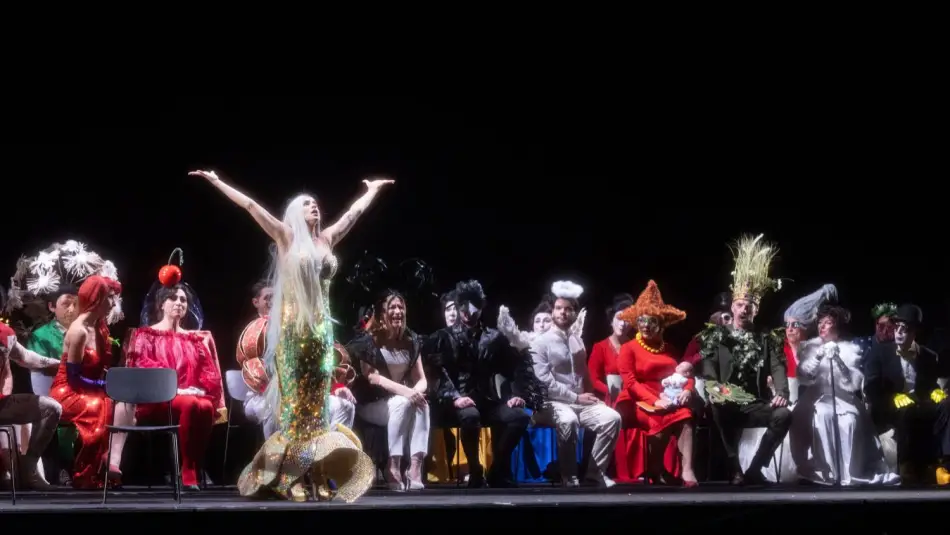
As is customary for the San Carlo, the rest of the cast is also made up of four star singers. The
return of Anita Rachvelishvili in the role of the witch Ježibaba is very welcome, with her voice of
great sound impact and a chest register that fills the large hall of the San Carlo. Even the acting, in the role of the witch who gives the filter to Rusalka in exchange for her voice, has a strong scenic impact, perfectly in tune with that of Grigorian. A true luxury Ekaterina Gubanova in the role of the foreign princess, gifted with a lush and authoritative vocality, and fully immersed in Tcherniakov’s difficult directorial work. Adam Smith, struggling with the terrible tessitura of the Prince, appears a bit in difficulty at the beginning, then growing during the performance, reaching a truly intense and moving finale of the work. Very well also Gabor Bretz’s Vodnik, confident and vigorous.
The conduction of Dan Ettinger, music Director of the Theatre, appears in line with the staging,
favoring a very analytical reading, to the detriment of the folkloric and colorful aspect that
characterizes Dvořák’s score. Excessive sounds in many moments, drown out the voices and put
the singers in difficulty. The first parts of the Orchestra were excellent, worth mentioning are the
beautiful assolo of the harp.
The large audience present decreed a limited and esteemed success, probably intimidated by
unusual rendition of the director’s reading.
CASTING
Princ / The Prince | Adam Smith
Cizí kněžna / The foreign Princess | Ekaterina Gubanova
Rusalka | Asmik Grigorian
Vodník | Gabor Bretz
Ježibaba | Anita Rachvelishvili
Hajný / Gamekeeper | Peter Hoare
(in the director’s vision, Rusalka’s Father)
Kuchtík / Kitchen Boy | Maria Riccarda Wesseling
(in the director’s vision, Rusalka’s Mother)
1. lesní žínka / First Wood Spirit | Julietta Aleksanyan
2. lesní žínka / Second Wood Spirit | Iulia Maria Dan♭
3. lesní žínka / Third Wood Spirit | Valentina Pluzhnikova
Lovec / The hunter | Andrey Zhilikhovsky
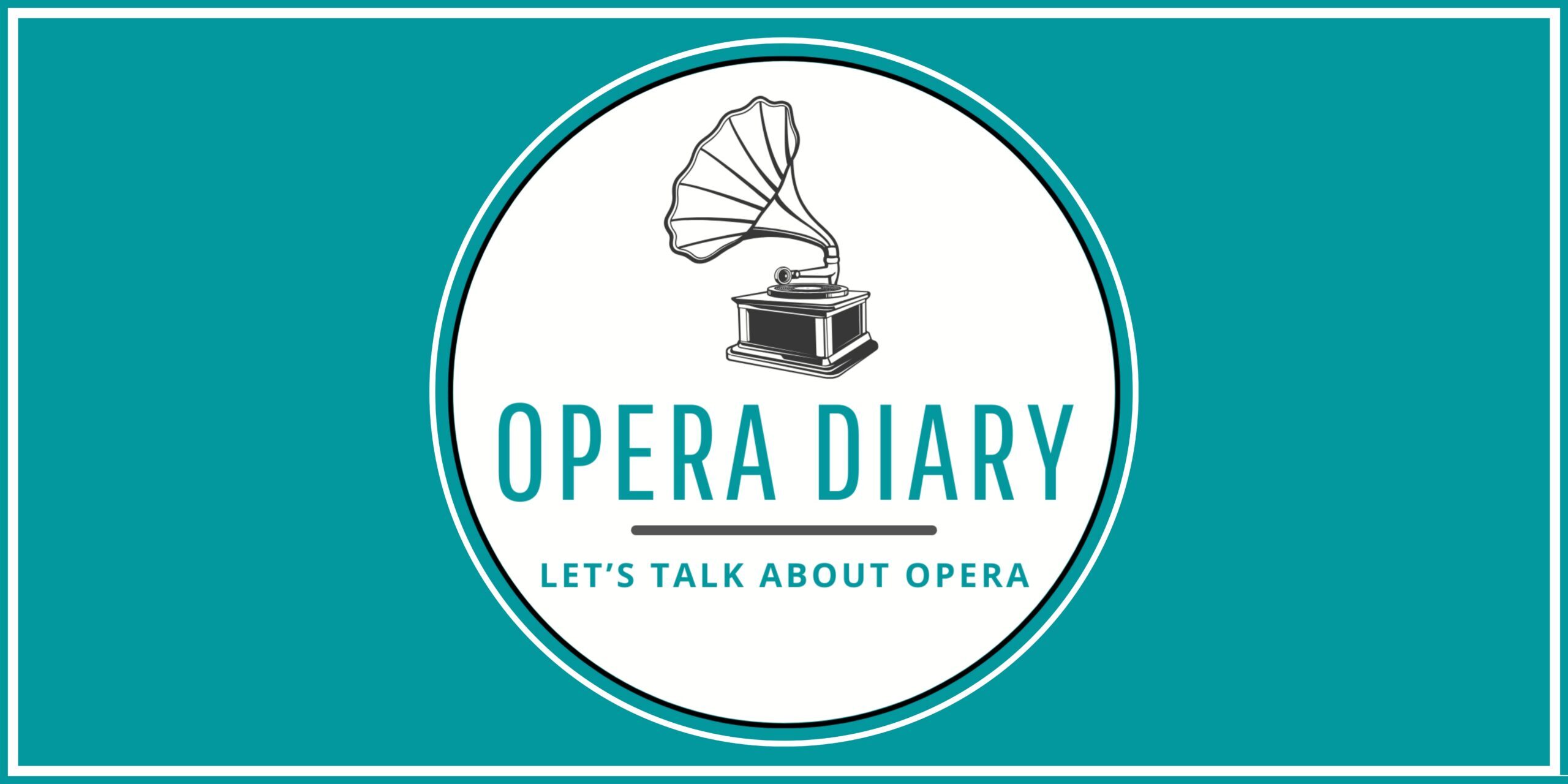

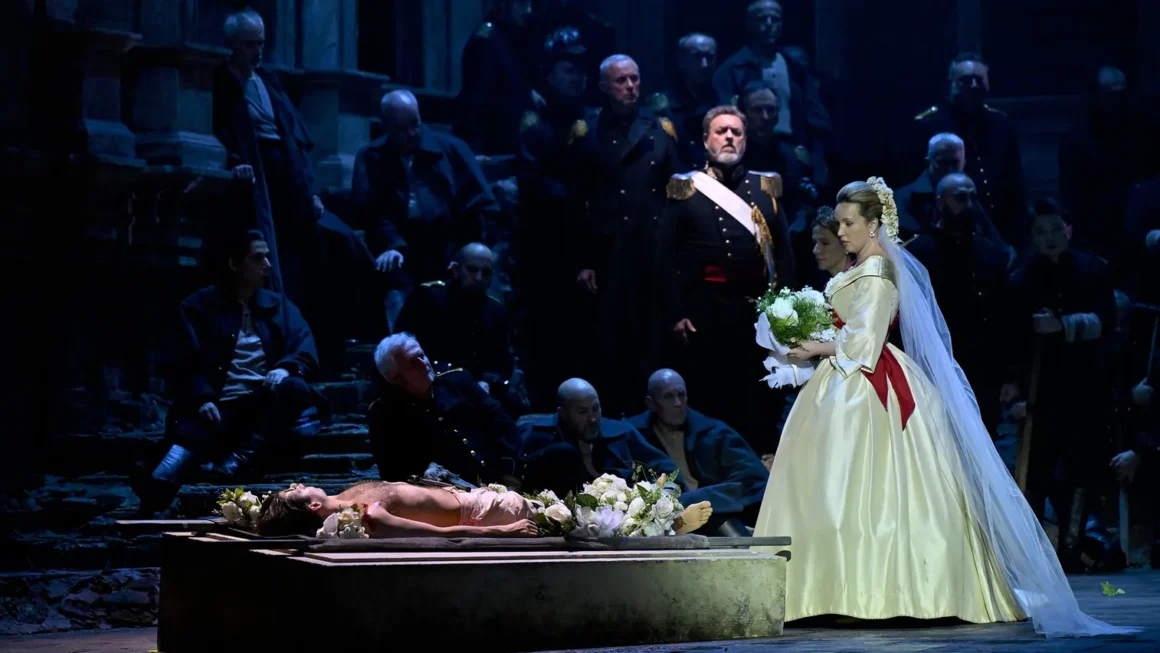
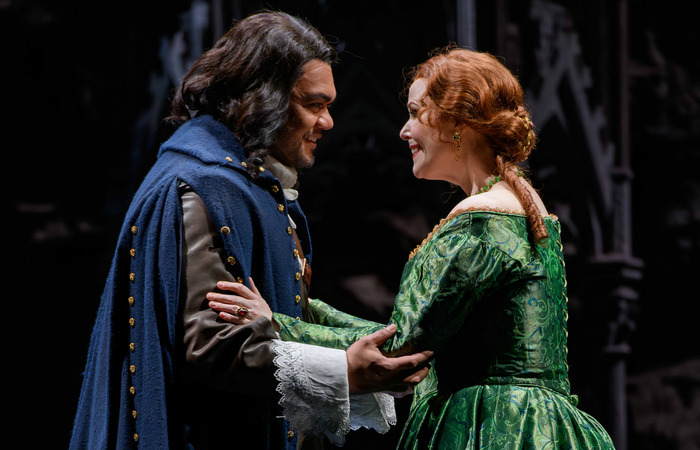
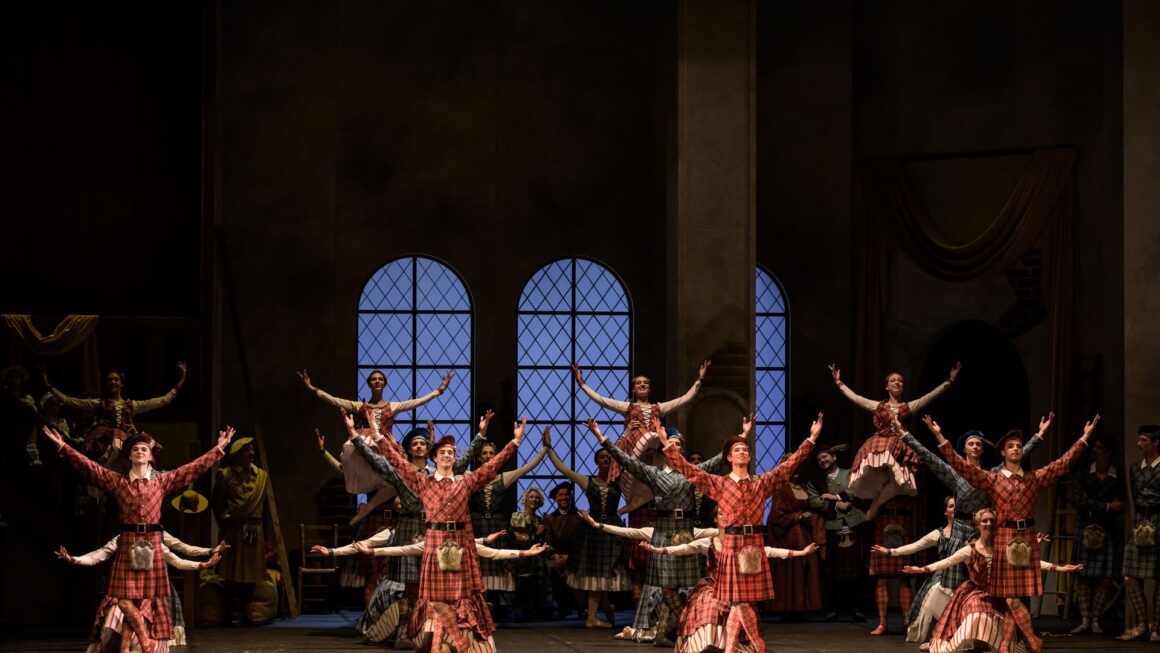
This is probably one of the most insightful reviews I read on Rusalka at San Carlo.
Probably other productions by Tcherniakov were more compelling, but this one was imaginative and compelling.
I also found the scene of the masquerade the most theatrically convincing, with the moon song at the other extreme.
Conversely, I liked the rendition given by Dan Ettinger. Sitting in the second row of the stalls I did not find the singers drowned by orchestra playing, and there were at times very inspired “rubatos” that captured the Bohemian spirit.
Asmik Grigorian was mesmerising beyond any praise – as it is to be expected. But she should have not obliged to the request of the “regisseur” to utter some ugly “verismo” sighs at the death of the Prince.
Too bad that the audience of the San Carlo did not deserve to be treated with such an outstanding opera night. This show would have made a sensation in any other less provincial opera house.
Dear Luigi,
I agree 100 % with your conclusion! This performance is so outstanding that I will come back to see it again!